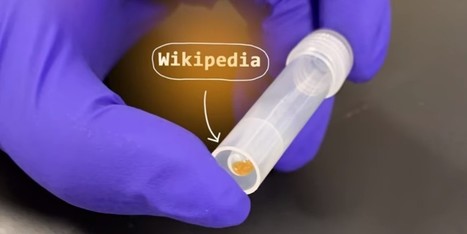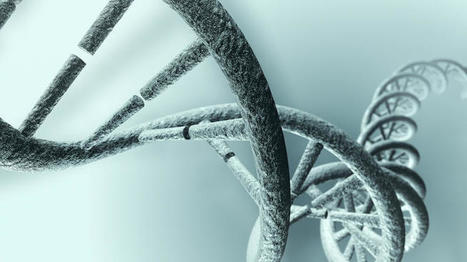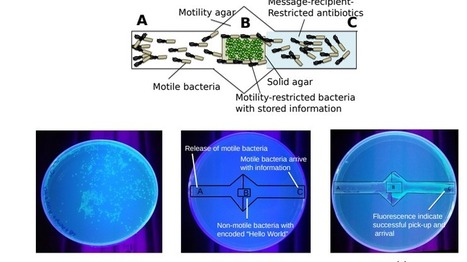Desoxyribonukleinsäure, kurz DNA, ist ein Biomolekül, das als Träger von Erbinformationen von allen Lebewesen fungiert. DNA-Stränge sind sehr kompakt und schwierig in der Handhabung, allerdings auch chemisch stabil. Der perfekte Speicher also? Das DNA-Start-up Catalog aus Boston, USA forscht zumindest in diese Richtung und kann nun auch einen riesigen Erfolg aufweisen.
Wie Cnet berichtet, ist es dem Unternehmen gelungen, den kompletten Text der englischsprachigen Wikipedia, rund 16 Gigabyte an Daten, auf DNA zu schreiben. Das Kunststück gelang mit einer Eigenentwicklung eines DNA-Schreibers. Und selbst wenn es eher unwahrscheinlich wirkt, dass unser Flash-Speicher bald durch DNA-Speicher ersetzt wird, glaubt das Unternehmen, dass die Technologie schon für einige Kunden zum Archivieren von Daten nützlich ist.
Learn more / En savoir plus / Mehr erfahren:
http://www.scoop.it/t/21st-century-innovative-technologies-and-developments/?tag=DNA



 Your new post is loading...
Your new post is loading...











Desoxyribonukleinsäure, kurz DNA, ist ein Biomolekül, das als Träger von Erbinformationen von allen Lebewesen fungiert. DNA-Stränge sind sehr kompakt und schwierig in der Handhabung, allerdings auch chemisch stabil. Der perfekte Speicher also? Das DNA-Start-up Catalog aus Boston, USA forscht zumindest in diese Richtung und kann nun auch einen riesigen Erfolg aufweisen.
Wie Cnet berichtet, ist es dem Unternehmen gelungen, den kompletten Text der englischsprachigen Wikipedia, rund 16 Gigabyte an Daten, auf DNA zu schreiben. Das Kunststück gelang mit einer Eigenentwicklung eines DNA-Schreibers. Und selbst wenn es eher unwahrscheinlich wirkt, dass unser Flash-Speicher bald durch DNA-Speicher ersetzt wird, glaubt das Unternehmen, dass die Technologie schon für einige Kunden zum Archivieren von Daten nützlich ist.
Learn more / En savoir plus / Mehr erfahren:
http://www.scoop.it/t/21st-century-innovative-technologies-and-developments/?tag=DNA